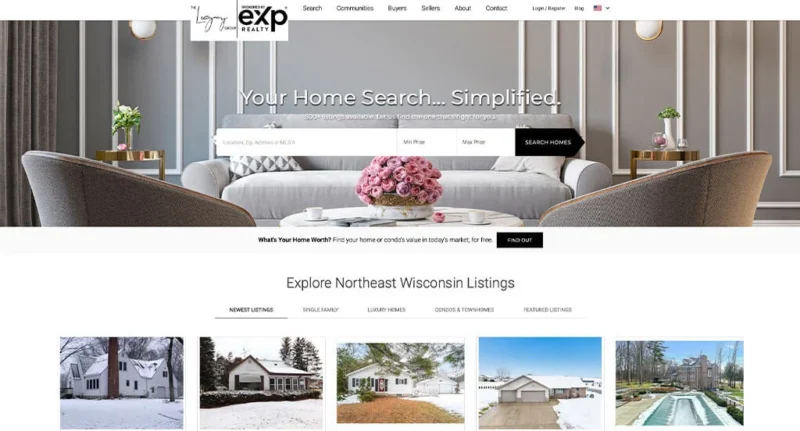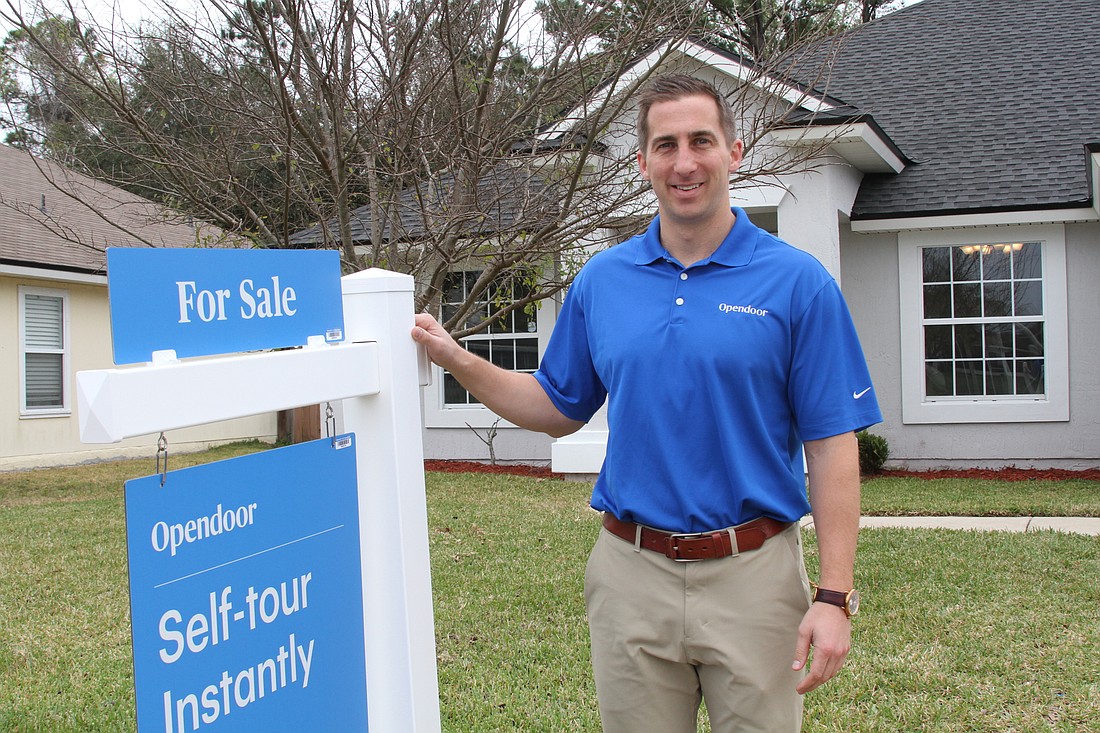Finding a home is a thrilling experience, but navigating the real estate market can be daunting. One of the biggest hurdles is identifying the right real estate agent to guide you through the intricacies of buying or selling. This guide will equip you with the strategies and knowledge necessary for successful best real estate lead generation, ensuring a smooth and successful journey.
Toc
- 1. Understanding the Importance of Quality Real Estate Leads
- 2. Leveraging Online Resources for the Best Real Estate Lead Generation
- 3. Exploring Offline Lead Generation Strategies
- 4. Evaluating Real Estate Leads and Making Informed Decisions
- 5. The Role of Technology in Real Estate Lead Generation
- 6. Related articles 02:
- 7. Frequently Asked Questions
- 8. Conclusion
Understanding the Importance of Quality Real Estate Leads

When it comes to the best real estate lead generation, not all leads are created equal. The difference between quantity and quality of leads can make or break a real estate agent’s success. High-quality leads translate into higher conversion rates and greater client satisfaction. Targeting the right audience is crucial for effective lead generation, ensuring that your efforts yield meaningful results.
In the ever-evolving landscape of real estate, understanding the importance of quality leads is paramount. By focusing on the best real estate lead generation strategies, agents can maximize their potential and build lasting client relationships. Quality leads not only save time and resources but also enhance the overall reputation of the agent in the market. For instance, a recent study by the National Association of Realtors found that agents who focus on generating high-quality leads experience a 20% higher conversion rate compared to those who prioritize quantity over quality. This translates to more closed deals, increased revenue, and a stronger reputation within the real estate community.
Leveraging Online Resources for the Best Real Estate Lead Generation

In today’s digital age, online resources are indispensable for real estate agents seeking to attract the best leads and build successful businesses. Here are some key strategies to consider:
Real Estate Websites
Zillow: One of the best websites for real estate leads, Zillow offers an extensive database of property listings, user-friendly navigation, and detailed neighborhood insights. To make the most of this platform, agents should optimize their listings with high-quality images and detailed descriptions. Regularly updating listings can help maintain visibility and attract more inquiries.
Redfin: This platform stands out for its real-time data and buyer rebates. Agents can leverage Redfin by keeping their profiles updated and engaging with user reviews to build credibility. Redfin’s user-friendly interface allows potential buyers to easily navigate through listings, which can lead to more inquiries and opportunities for agents.
Trulia: Known for its neighborhood data and school ratings, Trulia allows agents to showcase their expertise in local markets. By utilizing this site effectively, agents can connect with potential leads seeking specific community features. Agents should take advantage of the platform’s ability to provide insights into local amenities, which can be a deciding factor for many buyers.
Realtor.com: With comprehensive listings and mortgage calculators, Realtor.com serves as a valuable resource. Agents should focus on creating compelling profiles and utilizing the site’s advanced search filters to attract the right clients. Engaging with potential buyers through the platform can foster relationships and lead to successful transactions.
Optimizing for Search Engines: To ensure your listings are easily found by potential buyers, it’s crucial to optimize your website and listings for search engines. This involves using relevant keywords, creating high-quality content, and ensuring your website is mobile-friendly. By investing in SEO, you can increase your website’s ranking in search engine results pages (SERPs), making it more likely for potential buyers to find your listings.
Social media platforms are powerful tools for generating the best lead generation for real estate. Here’s how agents can utilize them effectively:
- Facebook: Use targeted advertising to reach potential clients in specific demographics. Create community groups to foster engagement and share local market insights. Posting regular updates about market trends can position you as a knowledgeable resource in your community.
- Instagram: Showcase properties through visually appealing posts and stories. Engage with followers by sharing behind-the-scenes content and real estate tips. Utilizing Instagram Stories for virtual tours or Q&A sessions can also attract more engagement and interest.
- LinkedIn: Connect with industry professionals and potential clients. Share informative articles and insights to establish authority and expertise in the real estate sector. Joining relevant groups on LinkedIn can also help expand your network and increase visibility.
The Rise of Virtual Home Tours: Virtual home tours are becoming increasingly popular, allowing potential buyers to explore properties remotely. Agents can create high-quality virtual tours using 360-degree cameras or specialized software, providing immersive experiences that can be shared on social media platforms like YouTube and Facebook. This trend is particularly beneficial in today’s world, where social distancing measures are still in place.
Online Real Estate Agent Directories
Utilizing online real estate agent directories can enhance visibility and attract leads. Platforms like Real Estate Agent Finder and AgentLocator allow agents to create profiles that showcase their expertise and client reviews. To optimize profiles, agents should:
- Ensure all information is up-to-date and accurate. This includes contact information, areas of specialization, and professional achievements.
- Highlight any specializations or certifications. This can set you apart from competitors and attract clients looking for specific expertise.
- Encourage satisfied clients to leave positive reviews. Testimonials can significantly boost credibility and attract new leads.
While online resources offer significant opportunities for lead generation, it’s important to remember the value of offline strategies. Building relationships through networking events, community involvement, and referrals can foster trust and create lasting connections. A combination of online and offline efforts can create a well-rounded approach to lead generation.
Exploring Offline Lead Generation Strategies

While online resources are invaluable, offline lead generation remains essential for building relationships and establishing credibility in the real estate market. Here are some effective strategies to consider:
Open Houses
Open houses provide a unique opportunity for agents to engage directly with potential clients. Here are some tips for maximizing your presence at open houses:
- Prepare informative materials that highlight property features and local market data. Providing brochures or flyers can give visitors something to take home, keeping your contact information handy.
- Engage visitors with personalized conversations, asking about their needs and preferences. This can help build rapport and establish trust, which is crucial in real estate transactions.
- Follow up with attendees after the event to nurture relationships and convert leads. Sending a thank-you email or a personalized message can leave a lasting impression.
Many agents are now using virtual reality (VR) technology to create immersive open house experiences. This allows potential buyers to virtually tour a property from the comfort of their homes, even before physically visiting. VR tours can be shared on social media and websites, expanding the reach of your open houses and attracting a wider audience.
Community Events
Participating in community events can significantly enhance your networking efforts. Consider these strategies:
- Attend local fairs, farmers’ markets, or charity events where you can meet potential clients. Setting up a booth at these events can increase your visibility and allow you to interact with community members.
- Offer to sponsor or host events to increase visibility and showcase your commitment to the community. This can position you as a local expert and trusted resource.
- Utilize these gatherings to share valuable insights about the local real estate market. Providing a free market analysis or hosting a seminar can attract potential leads and establish your authority.
Referrals
Building a strong referral network is crucial in real estate. To cultivate referrals:
- Ask satisfied clients for recommendations and provide incentives for successful referrals. Offering a small gift or discount can encourage clients to spread the word about your services.
- Maintain relationships with past clients through regular check-ins and updates. Sending holiday cards or newsletters can keep you on their minds for future referrals.
- Leverage your network by connecting with local businesses and professionals who can refer clients. Building relationships with mortgage brokers, insurance agents, and contractors can create a mutually beneficial referral system.
Local Real Estate Associations
Joining local real estate associations can provide agents with valuable resources and networking opportunities. Here’s how to leverage these associations effectively:
- Attend meetings and events to connect with other professionals in the industry. Networking with peers can lead to partnerships and referrals.
- Participate in workshops and training sessions to enhance your skills and knowledge. Staying up-to-date with industry trends can give you a competitive edge.
- Utilize association resources for market insights and trends that can benefit your lead generation efforts. Many associations provide access to data and tools that can improve your marketing strategies.
Evaluating Real Estate Leads and Making Informed Decisions

Not every lead is worth pursuing, so it’s essential to qualify leads before investing time and resources. Here’s a checklist to consider when evaluating potential leads:
- Assess the lead’s level of interest and urgency in buying or selling. Understanding their timeline can help you prioritize your efforts.
- Determine their budget and financial readiness. This will help you gauge whether they are serious about making a purchase or sale.
- Evaluate their specific needs and preferences to ensure a good fit. Matching leads with the right properties can increase the chances of conversion.
Data analytics plays a crucial role in modern lead generation strategies. By analyzing data on website traffic, social media engagement, and lead conversion rates, agents can identify patterns and trends. This information can be used to optimize marketing campaigns, tailor communication efforts, and prioritize the most promising leads. For example, agents can use data to determine which online platforms are most effective for reaching their target audience.
Using a lead scoring system can help prioritize leads based on these factors, ensuring that agents focus their efforts on the most promising prospects. This systematic approach can save time and increase efficiency in lead management.
The Role of Technology in Real Estate Lead Generation

Technology has transformed the way real estate agents generate leads. Embracing the right tools can streamline efforts and enhance results. Here are some key technological advancements to consider:
Chatbots and Artificial Intelligence
Chatbots powered by AI are becoming essential in real estate lead generation. These virtual assistants can:
4. https://chiccasrestaurant.com/orchard-real-estate-reviews-is-it-right-for-you/
- Provide instant responses to inquiries, ensuring potential leads feel valued and informed. Quick responses can significantly improve the chances of conversion.
- Gather essential information about buyers, helping agents tailor their approach. Understanding a lead’s preferences can enhance the overall experience.
- Schedule appointments, allowing agents to focus on building relationships. Automating administrative tasks can free up time for more meaningful interactions.
AI-driven predictive analytics can also identify promising leads, enabling agents to prioritize their outreach efforts. This data-driven approach ensures that resources are directed towards the prospects most likely to become clients. While technology plays a crucial role in streamlining lead generation, it’s important to remember that building genuine relationships remains paramount. Technology can enhance communication and efficiency, but it should not replace the human touch. Agents should strive to personalize their interactions, listen to clients’ needs, and build trust through authentic communication.
Lead Nurturing Platforms
CRM systems play a crucial role in managing leads effectively. Here’s how to use these platforms:
- Track interactions with leads and segment them based on their stage in the buying process. This allows agents to tailor their communication and strategies accordingly.
- Automate personalized communication to ensure timely follow-ups and relevant content. Consistent communication can keep leads engaged and informed.
- Analyze data to optimize lead generation strategies and improve conversion rates. Utilizing insights from CRM systems can help refine your approach and enhance effectiveness.
Frequently Asked Questions

Q: What are the best real estate lead generation websites?
A: Some of the best real estate lead generation websites include Zillow, Redfin, Trulia, and Realtor.com. These platforms offer extensive listings and valuable resources for agents.
Q: How can I get referrals for real estate leads?
A: Build strong relationships with past clients and ask for referrals. Networking with local businesses and professionals can also yield valuable leads.
Q: What are some common mistakes to avoid when generating real estate leads?
A: Avoid neglecting follow-ups, failing to qualify leads, and not leveraging online resources effectively. Consistent communication and targeted marketing strategies are key.
Q: How can I measure the success of my real estate lead generation efforts?
A: Track key metrics such as conversion rates, lead sources, and engagement levels. Analyzing this data will help refine your strategies for better results.
Conclusion
Navigating the world of real estate lead generation is essential for agents looking to succeed in a competitive market. By leveraging both online and offline strategies, agents can attract the best real estate leads and build lasting relationships with clients. Remember to evaluate leads carefully, utilize technology effectively, and maintain strong communication to ensure success. Start implementing these strategies today, and watch your real estate business thrive!
In the ever-changing landscape of real estate, staying ahead of the curve with the best real estate lead generation strategies will empower you to connect with clients and grow your business effectively. With a well-rounded approach that combines technology, personal relationships, and targeted marketing, you can ensure a steady stream of leads that will contribute to your success in the industry. Embrace these best practices, and take your real estate career to new heights!











